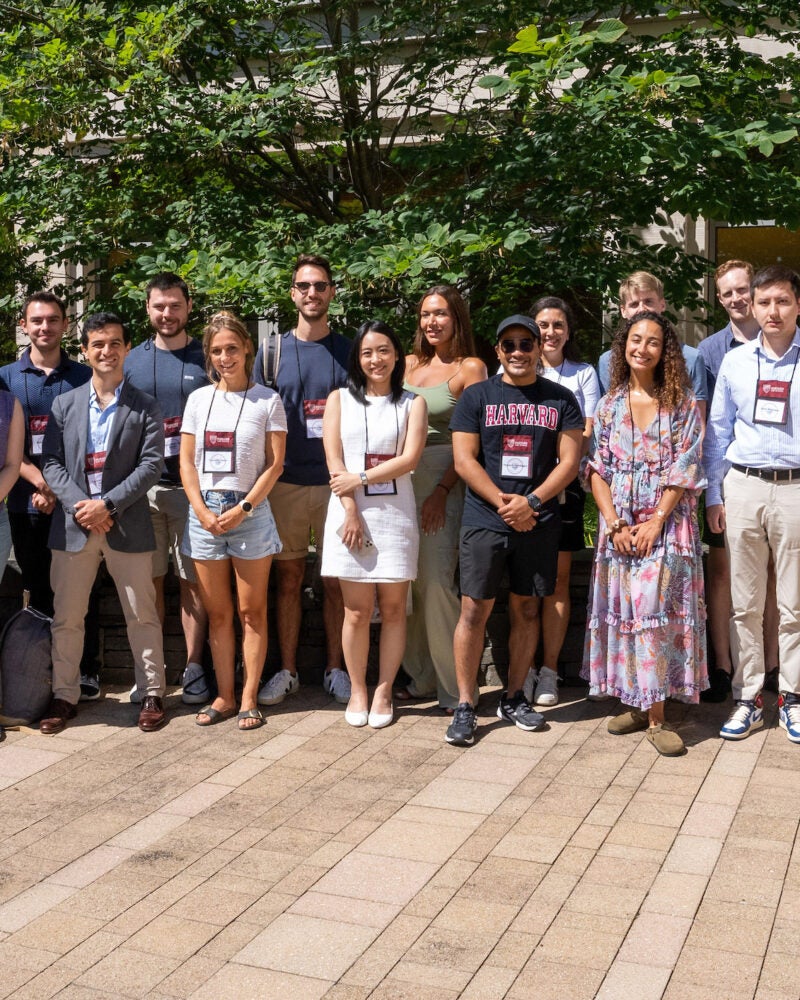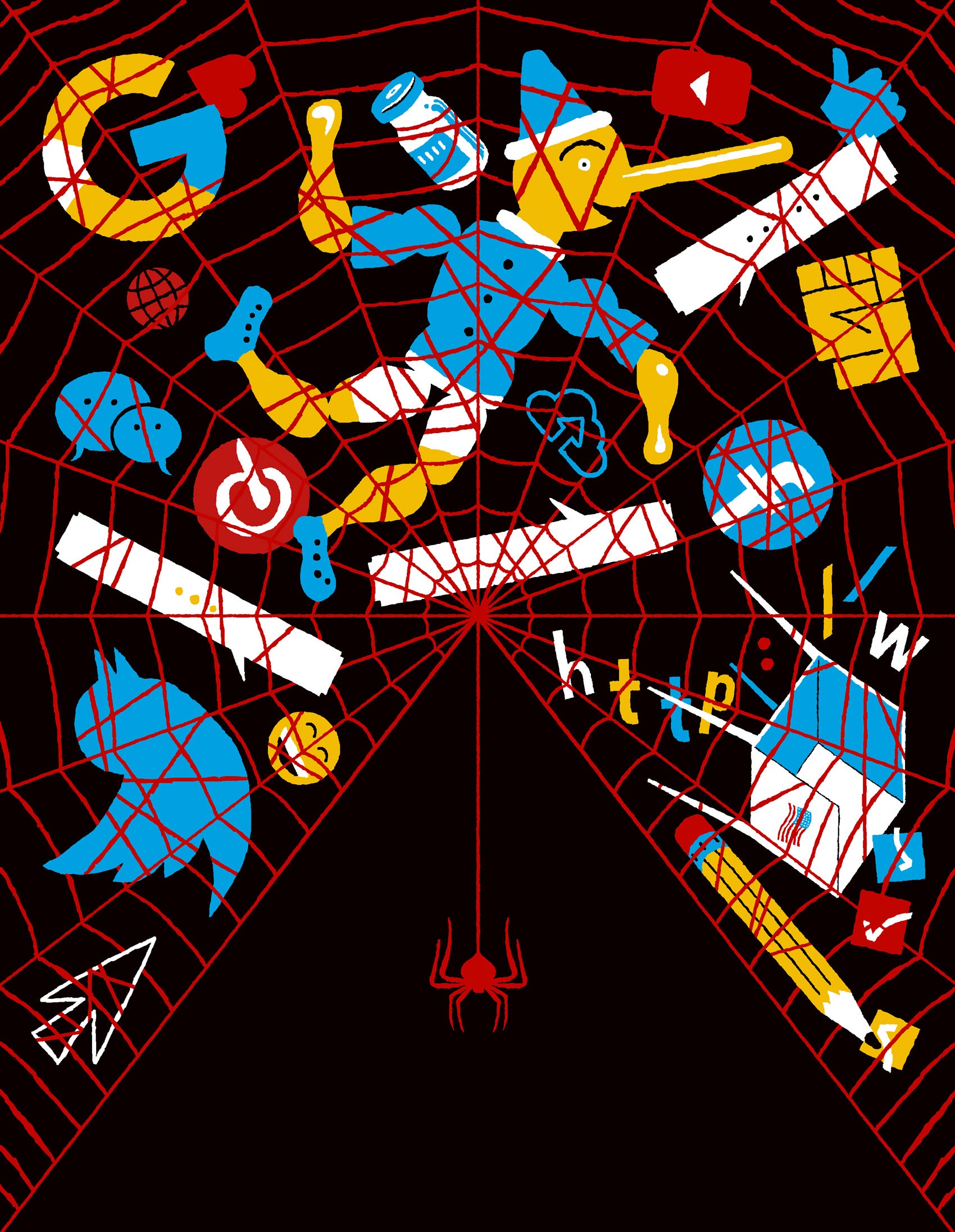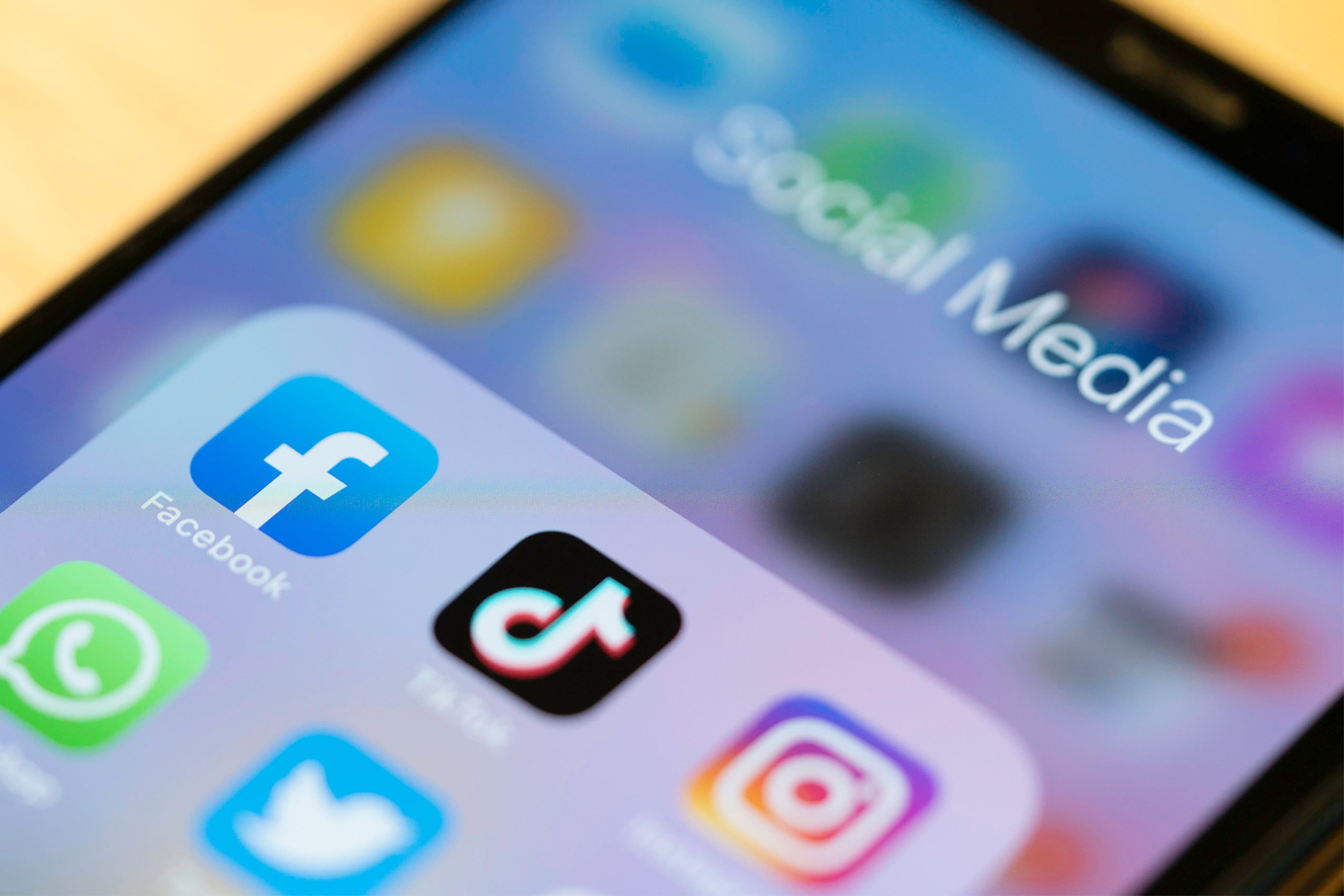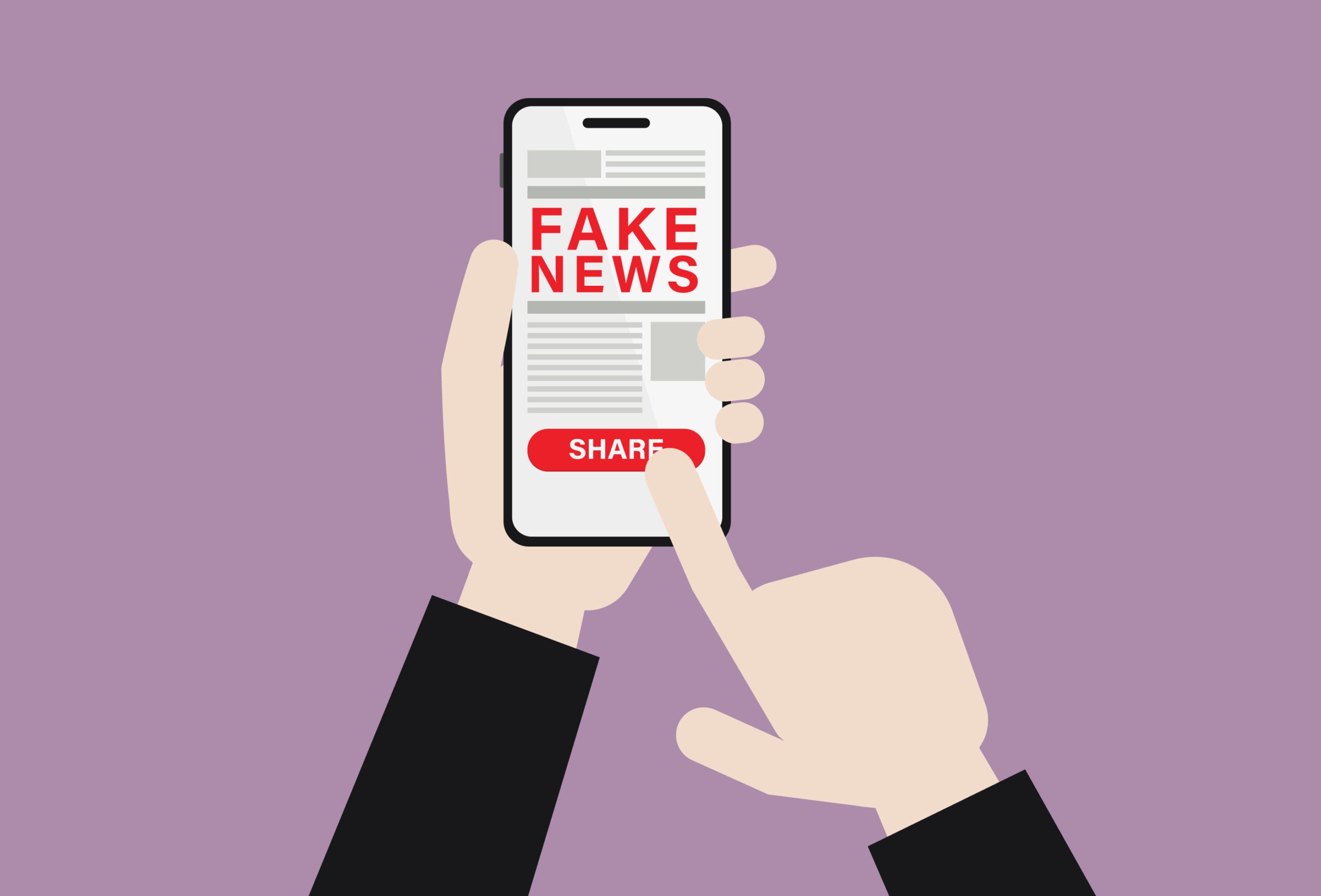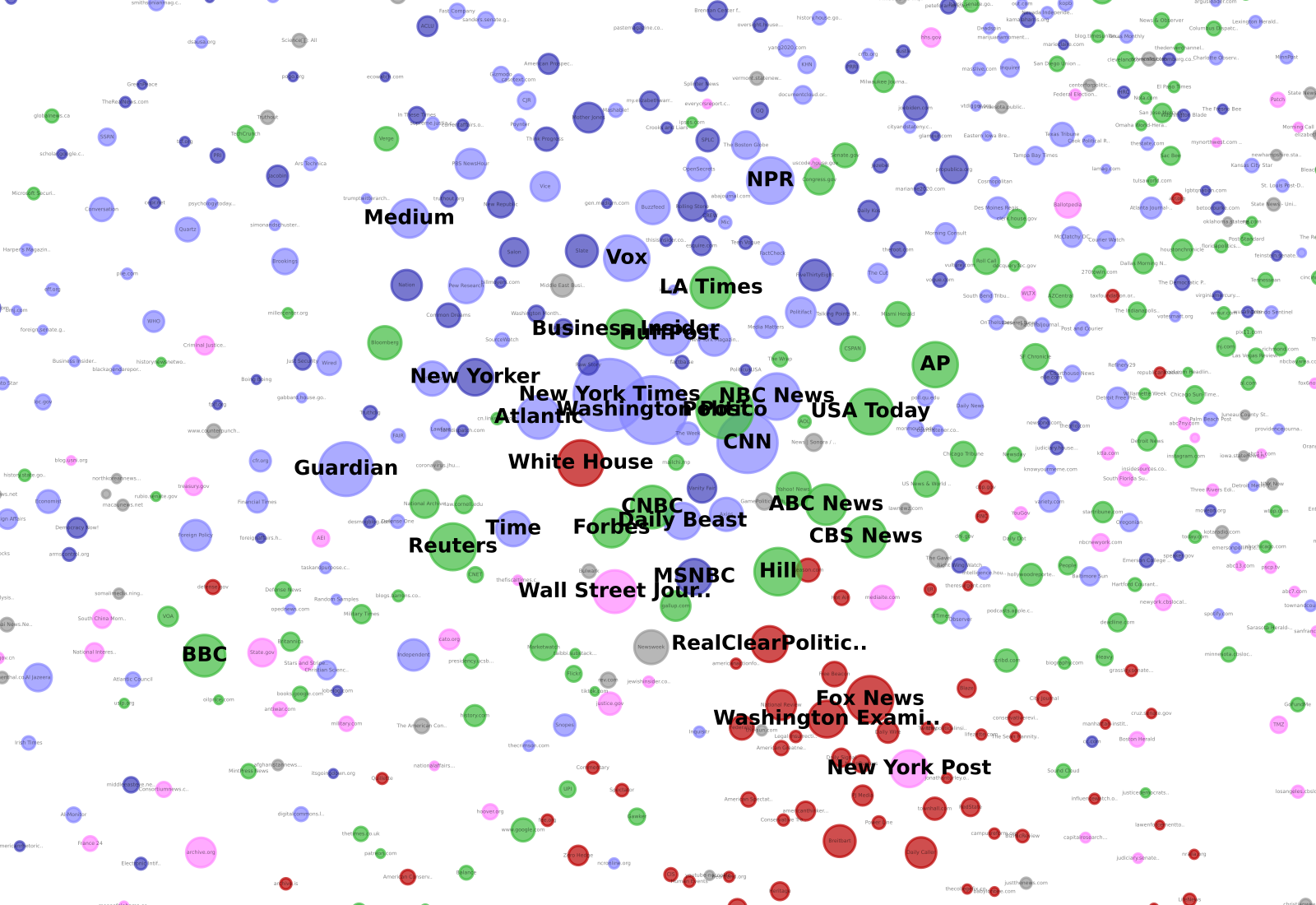People
Yochai Benkler
-
You won’t find Red Pill News or the X22 Report on YouTube anymore. The far-right online shows were taken down in the fall of 2020 after the major social media and tech companies started purging accounts that spread the QAnon conspiracy theory. But you will find both of them on a video-sharing platform called Rumble, where their content ranks among the most popular on the site. ... “It’s an intensely engaged population,” said Yochai Benkler, a professor at Harvard Law School who is a co-author of a book about the ways conservative outlets reinforce their messages through repetition and shut down dissent. For an individual platform like Rumble, he added, the audience is likely to be larger than whatever the size is on paper.
-
Division reigns over Jan. 6 anniversary
January 13, 2022
On Jan. 6, 2021, a violent mob of rally attendees, fresh from hearing President Donald Trumpspeak near the White House, marched to the Capitol, forced their way past barricades and a line of police officers and stormed the building, interrupting the certification of President Joe Biden’s electoral victory. ... Republicans then largely boycotted the select committee established by Pelosi in July after she rejected two of McCarthy’s picks. “I think when McCarthy decided not to join formally, the decision was to basically refuse to accept anything other than partisan narrative. I have my story; you have your story. And we lose this very, very fundamental tool to develop a shared sense of what actually happened,” said Yochai Benkler, co-director of the Berkman Klein Center for Internet and Society at Harvard University who has studied disinformation within the Republican Party. Benkler blamed a “propaganda feedback loop” where GOP politicians, conservative-leaning media and activated voters all reinforce and police one another.
-
Two women who were Georgia election workers in 2020 are suing the far-right conspiracy website Gateway Pundit for defamation, alleging that the site and its owners knowingly published false stories about them that instigated a relentless campaign of harassment and threats. ... During the 2016 campaign, Gateway Pundit was among the most frequently shared media sources on Twitter and Facebook among followers of Trump, far more than mainstream news outlets, according to a study led by Harvard law professor and internet scholar Yochai Benkler.
-
Oh, what a tangled web we weave
July 7, 2021
Deception spreads faster than truth on social media. Who — if anyone — should stop it?
-
Should the internet be treated like a public utility?
April 20, 2021
At the annual Klinsky Lecture, Visiting Professor John G. Palfrey ’01, president of the MacArthur Foundation, says we need a regulatory regime for technology.
-
Democracy Is Weakening Right in Front of Us
February 17, 2021
A decade ago, the consensus was that the digital revolution would give effective voice to millions of previously unheard citizens. Now, in the aftermath of the Trump presidency, the consensus has shifted to anxiety that online behemoths like Twitter, Google, YouTube, Instagram and Facebook have created a crisis of knowledge — confounding what is true and what is untrue — eroding the foundations of democracy. These worries have intensified in response to the violence of Jan. 6, and the widespread acceptance among Republican voters of the conspicuously false claim that Democrats stole the election...Yochai Benkler, a law professor at Harvard, contends in an email that “it’s a mistake to conceive of technology as an external force with a known definitive effect on social relations.” “Radio,” Benkler argues, was as available for F.D.R.’s fireside chats as it was for Hitler’s propaganda. Ten years ago the internet in general, and Facebook in particular, was widely perceived as a liberation. Now it’s blamed for the collapse of liberal democracy. Digital media has distinctive characteristics that “can work both to improve participation and democratic governance and to undermine it,” Benkler adds. “It was citizens’ video journalism capturing the evidence and broadcasting it on social media, coupled with the mass protests,” he notes, “that changed the public conversation about police shootings of Black Americans. And it was also social media that enabled the organization and mobilization of Unite the Right in Charlottesville.”
-
Blocking the president
January 13, 2021
Harvard Law experts Yochai Benkler and evelyn douek weigh in on the suspension of President Trump’s social media accounts and potential First Amendment implications.
-
The Technology 202: Trump is losing Twitter followers as Biden gains nearly 2 million heading to White House
December 11, 2020
President Trump has governed by Twitter for the last four years – using it to announce new policies, fire government officials, and attack his enemies. But there are signs that the power of that bully pulpit is dampening during the lame-duck period of his presidency, even as the president uses it to push baseless claims of election fraud. His account has lost more than 300,000 Twitter followers since Nov. 17, according to data from the Twitter tracker Factba.se. That’s just a tiny fraction of his 88.6 million followers — but it’s a shift for an account that had largely been growing at a fast clip for most of his time in office, even as he attacked social media companies for censoring conservatives. Trump had only 20.8 million followers when he took office on Jan. 20, 2017, per Factba.se...Yochai Benkler, co-director of the Berkman Klein Center for Internet and Society at Harvard University and an expert on the news media and misinformation, said he expects a “somewhat diminished" presence from Trump on Twitter after he leaves office. “This initial loss suggests a very small dribbling away,” Benkler said. But overall, he said he continues to have stable support from his base, and the drama and entertainment that comes from his feed could keep drawing people in. “I would be very surprised if he goes quietly into the night either willingly or unwillingly and just gets ignored by people,” Benkler added. “He's going to keep being a player.”
-
Social media bet on labels to combat election misinformation. Trump proved it’s not enough
December 8, 2020
Around the election, social media platforms including Facebook and Twitter were praised for how quickly and widely they applied warning labels to misinformation. But President Donald Trump's 46-minute video last week, which was riddled with election misinformation and conspiracy theories discredited by his own officials and the courts, has made unmistakably clear what many digital democracy experts have been warning for months: labels are not enough. Social media platforms' misinformation labels, they've said, are inadequate and ill-matched for the torrent of false claims that continue to divide Americans and jeopardize their faith in democratic processes...Twitter's label on Trump's video perfectly captures how outgunned the companies still are. Trump didn't just make one claim about election fraud in the video. The speech contained a multitude of debunked allegations, baseless conspiracy-mongering and unproven complaints...Legacy news outlets handled the posts very differently, according to Yochai Benkler, a professor at Harvard Law School and co-director of the Berkman Klein Center for Internet and Society. "We saw much more explicit treatments of the video as false or without basis, by centrist professional media, in a way that is likely to help the millions of people who are not already committed to a partisan interpretation of the election deal with this steady flow of disinformation from Trump," Benkler said.
-
Political discourse and the 2020 U.S. Election
November 24, 2020
The Berkman Klein Center for Internet & Society researchers Yochai Benkler and Robert Faris document how polarized media in the United States shape political discourse and the 2020 election.
-
Tucker Carlson Dared Question a Trump Lawyer. The Backlash Was Quick.
November 23, 2020
For more than a week, a plain-spoken former federal prosecutor named Sidney Powell made the rounds on right-wing talk radio and cable news, facing little pushback as she laid out a conspiracy theory that Venezuela, Cuba and other “communist” interests had used a secret algorithm to hack into voting machines and steal millions of votes from President Trump. She spoke mostly uninterrupted for nearly 20 minutes on Monday on the “Rush Limbaugh Show,” the No. 1 program on talk radio. Hosts like Mark Levin, who has the fourth-largest talk radio audience, and Lou Dobbs of Fox Business praised her patriotism and courage. So it came as most unwelcome news to the president’s defenders when Tucker Carlson, host of an 8 p.m. Fox News show and a confidant of Mr. Trump, dissected Ms. Powell’s claims as unreliable and unproven...A question for conservative media that are more independent of Mr. Trump is how much of the market the unabashedly pro-Trump media dominates in the future. Some scholars said they expected that audience to be substantial. “Drudge and Fox can try to pull back from the abyss,” said Yochai Benkler, a professor at Harvard Law School who studies conservative media. “But the audience is going to get what it wants and reward those who give it to them.”
-
Trump’s power on Twitter, Facebook will outlive his presidency
November 9, 2020
President Trump will leave the White House with a massive social media following that he could use to shape the nation’s politics throughout his successor’s administration and beyond. When Trump started his first campaign in 2015, he had just 3 million Twitter followers and 10 million on Facebook. But should Democrat Joe Biden’s apparent electoral edge withstand legal challenge, Trump would leave office with a singularly powerful online megaphone — at least 88 million followers on Twitter, 31 million on Facebook and 23 million on Instagram — that will give him a unique ability to communicate his thoughts to legions of supporters accustomed to hearing from him more than three-dozen times a day...One critical test of whether Trump’s megaphone will be as potent after he leaves office will be whether he can forge the same close alliance with Fox News that he enjoyed during his presidency, said Yochai Benkler, co-director of the Berkman Klein Center for Internet and Society at Harvard University and an expert on the news media and misinformation. Fox pundits have consistently repeated White House talking points, as has the news side of Fox, Benkler said, giving significant credence to and amplification of Trump’s messages. Another issue will be whether Trump tries to capitalize financially on his audience in the months ahead, Benkler said. He suggested Trump could go into competition with Fox if he doesn’t regain the same level of support following a bruising election in which the president and his allies criticized the network for its polling and its election-week declarations about which states had been won by Biden. So far, he said, the news network has shown “restraint,” in its coverage of the Trump campaign’s allegations of voter fraud and attempts by Democrats to steal the election. “But I’m not sure it will hold,” he said.
-
Hard lessons from a tough election
November 6, 2020
It was a presidential election befitting the past four years, unprecedented and contentious...The Gazette asked scholars and analysts across the University to reflect on lessons learned in a variety of areas...Tomiko Brown-Nagin: “This election crystalized American promise and American peril. Fifty-five years after passage of the Voting Rights Act and 100 years after ratification of the 19th Amendment, the fundamental right to vote — the essence of a democracy —remains ferociously contested and deeply cherished. Turnout was extraordinary! An estimated 67 percent of eligible voters cast ballots — almost 160 million people — the greatest number in more than 100 years...At the same time, we witnessed a concerted effort to suppress the vote, to intimidate voters, and to delegitimize legally cast votes.” ... Sandy Levinson: “What we learned was that the uncertainty of this election is entirely a function of the crazy way that Americans elect their president, which is through the Electoral College. This means, for example, that [President] Trump gets nine electoral votes for carrying the two Dakotas plus Wyoming, which collectively have only about 200,000 more residents than New Mexico, which contributed only five votes. What remains an ‘interesting’ question, if one is an academic, is why Americans persist with such a truly dysfunctional system of presidential election.” ... Carol Steiker: “What I have learned in this election is that despite, or perhaps because of, the anger and divisiveness that have marked this political season, it is possible to substantially shift the needle on popular political engagement. We are seeing levels of voter turnout in this election not seen in more than a century, since William Howard Taft defeated William Jennings Bryan in 1908.” ... Kenneth Mack: “What I have learned from this election so far is both a lot and a little. Historians typically look at elections as vehicles for possible political, economic, or social change. Certainly in the run-up to this year’s election we’ve seen some things change significantly. We have the first woman of color on a major party ticket (who now seems poised to become vice president), Black candidates seeming to run competitively statewide in several Southern states, and efforts to suppress minority voting of a kind we haven’t seen in decades.” ... Yochai Benkler: “ The right-wing propaganda feedback loop, anchored in Fox News and talk radio and supported by online media, has played two critical roles in the election. The first, and most foundational, is that throughout the presidency of Donald Trump it offered an alternative reality, in which the president was a strong, effective leader hounded by an alliance of Democrats who hate America and Deep State operatives bent on reversing the victory of Trump, the authentic voice of the people.”
-
A new report finds that President Trump and the Republican Party are driving online misinformation this election, not shady actors on Facebook or Russian trolls. When it comes to false claims about mail-in voting, Trump’s Twitter account functions as a press release, says Yochai Benkler, who led the team of researchers at Harvard University's Berkman-Klein Center for Internet and Society. Trump’s tweets make their way into headlines, which are amplified by the Republican National Committee, his campaign staff and the White House communication team, Benkler says. Both right-wing outlets and mainstream media have helped Trump spread false messages, Benkler says. Journalists don’t want to take sides or appear biased, he says, so Trump’s “outrageous” claims are put in headlines with a fact-check saying they’re false a few paragraphs down in the story. In August, the researchers started seeing more use of the truth sandwich. “Early on, this basic desire to grab a headline really helped him get his message outside of those inside the propaganda feedback loop and into the more mainstream,” Benkler says. A Cornell University study that analyzed 38 million articles about the pandemic found mentions of Trump made up nearly 38% of what they call “the misinformation conversation.” This makes the president the largest driver of falsehoods about the pandemic around the world. And here in the United States, Benkler’s team finds Trump and other Republicans are the biggest drivers of falsehoods about voting. Many media outlets have adopted a “dual-track” where they report Trump’s claims to look balanced and then go back to fact check, Benkler says. But what’s initially reported matters most, he says. “Nobody reads the fact check except for people who already want to find out that the president is lying,” he says. “You really do need to do the fact-checking before the headline is written. And the headline and the lead need to teach the audience what you're about to hear is false. Then you can really contain it.”
-
Overestimating the foreign threat to elections poses its own risks, U.S. officials and experts say
October 29, 2020
Iranian government-backed hackers last week pulled off a feat few were expecting. They became the first foreign adversary to interfere in the 2020 election by sending threatening emails to voters. But that action — so far the only confirmed intelligence operation by a foreign government that directly targeted specific voters in this election — had far less impact than Moscow’s hacking and leaking of Democratic emails four years ago. Officials and disinformation experts warn that overestimating the threat posed by foreign spies and hackers plays into their narrative that they have the power to sow chaos, and undermines the ability to fashion the most effective and proportionate response...Much of the disinformation circulating today is driven by domestic actors, including the White House, said Yochai Benkler, co-director of the Berkman Klein Center for Internet and Society at HarvardUniversity. Occasionally the Russians may have amplified some of President Trump’s false claims that mail-in ballots are insecure or the pandemic has been stanched, he said. “But I haven’t seen anything meaningful.” To overstate the effect of Russian efforts, he said, is to enable their success. If policymakers respond out of fear or anger, they risk compounding the problem, he said. A number of researchers have concluded that the effects of Russian efforts on social media in 2016 likely were overstated, and that by contrast, the Russian hack and subsequent leak of emails from the Democratic National Committee and John Podesta in 2016 arguably had an impact. The leaks led to the resignation of the DNC leadership and disrupted the Democratic convention, and also shaped the media and debate narratives in ways that undermined Democratic nominee Hillary Clinton.
-
It started with a tweet from a conservative media personality, accompanied by photos, claiming that more than 1000 mail-in ballots had been discovered in a dumpster in Sonoma county in California. Within hours on the morning of 25 September, a popular far-right news website ran the photos with an “exclusive” story suggesting thousands of uncounted ballots had been dumped by the county and workers had tried to cover it up. In fact, according to Sonoma county officals, the photos showed empty envelopes from the 2018 election that had been gathered for recycling. Ballots for this year’s general election had not yet been mailed. Even so, within a single day, more than 25,000 Twitter users had shared a version of the false ballot-dumping story, including Donald Trump Jr., who has 5.7 million followers...Not all election disinformation is coming from the bottom up, however. Yochai Benkler, co-director of the Berkman Klein Center for Internet and Society at Harvard, and colleagues recently examined how claims of potential fraud associated with mail-in ballots entered public discourse. The researchers analyzed more than 55,000 online news stories, 5 million tweets, and 75,000 posts on public Facebook pages between March and August. They found that most spikes in media coverage and social media activity on the topic were driven by Trump himself—either through his own hyperactive Twitter account, press briefings, or appearances on the Fox TV network. “Donald Trump has perfected the art of harnessing mass media to disseminate and reinforce his disinformation campaign,” the researchers write in a preprint posted earlier this month.
-
Fearful calls flood election offices as Trump attacks mail-in voting, threatening participation in GOP strongholds
October 26, 2020
Weber County, a majority-Republican community of 260,000 on the eastern shores of Utah’s Great Salt Lake, held its first by-mail election in 2013. The process gained such widespread confidence that by June of this year, more than 99 percent of ballots cast in the primary were placed in the mail or deposited in a drop box. But something has changed in Weber County, which now requires three full-time phone operators to field calls from residents “suddenly worried about voting by mail,” said Ricky Hatch, the county clerk and auditor... In many cases, the worries can be traced to baseless or alarmist statements by President Trump and posts on his Twitter feed. Others have been fed by headlines stripped of context and misleading reporting in the mainstream media, according to election administrators, voting rights advocates and experts in online communication...A study released this month by Harvard University’s Berkman Klein Center for Internet and Society offered fresh evidence of the dangers posed by homegrown misinformation. For months, Trump has generated entire news cycles that serve to cast doubt about mail-in voting, which mainstream outlets have at times covered uncritically, the report found. The president’s influential allies have eagerly shared these and other stories with their vast online audiences, enhancing their reach and fomenting fresh doubt about the legitimacy of the 2020 vote. “With respect to mail-in voter fraud, the driver of the disinformation campaign has been Trump, as president, supported by his campaign and Republican elites,” said Yochai Benkler, who leads the center and co-wrote the report. In these and other cases, Benkler said, misconceptions and hoaxes that take root in the White House come to frame reporting in mainstream and partisan news sources alike. Any development related to the process of voting becomes fodder in a competition for narrative control. “The question is, who picks up that formal announcement and reframes it, or retells it, as a narrative of rampant fraud,” he said.
-
The first amendment in the age of disinformation.
October 14, 2020
This summer, a bipartisan group of about a hundred academics, journalists, pollsters, former government officials and former campaign staff members convened for an initiative called the Transition Integrity Project. By video conference, they met to game out hypothetical threats to the November election and a peaceful transfer of power if the Democratic candidate, former Vice President Joe Biden, were to win. Dividing into Team Trump and Team Biden, the group ran various scenarios about counting ballots and the litigation and protests and violence that could follow a contested election result. The idea was to test the machinery of American democracy...The conspiracy theories, the lies, the distortions, the overwhelming amount of information, the anger encoded in it — these all serve to create chaos and confusion and make people, even nonpartisans, exhausted, skeptical and cynical about politics. The spewing of falsehoods isn’t meant to win any battle of ideas. Its goal is to prevent the actual battle from being fought, by causing us to simply give up. And the problem isn’t just the internet. A working paper from the Berkman Klein Center for Internet and Society at Harvard released early this month found that effective disinformation campaigns are often an “elite-driven, mass-media led process” in which “social media played only a secondary and supportive role.” Trump’s election put him in the position to operate directly through Fox News and other conservative media outlets, like Rush Limbaugh’s talk-radio show, which have come to function “in effect as a party press,” the Harvard researchers found...In a 2018 book, “Network Propaganda,” Yochai Benkler, a director of the Berkman Klein Center at Harvard, and two researchers there, Robert Faris and Hal Roberts, mapped the spread of political disinformation in the United States from 2015 to 2018. Analyzing the hyperlinks of four million news articles, the three authors found that the conservative media did not counter lies and distortions, but rather recycled them from one outlet to the next, on TV and radio and through like-minded websites.

